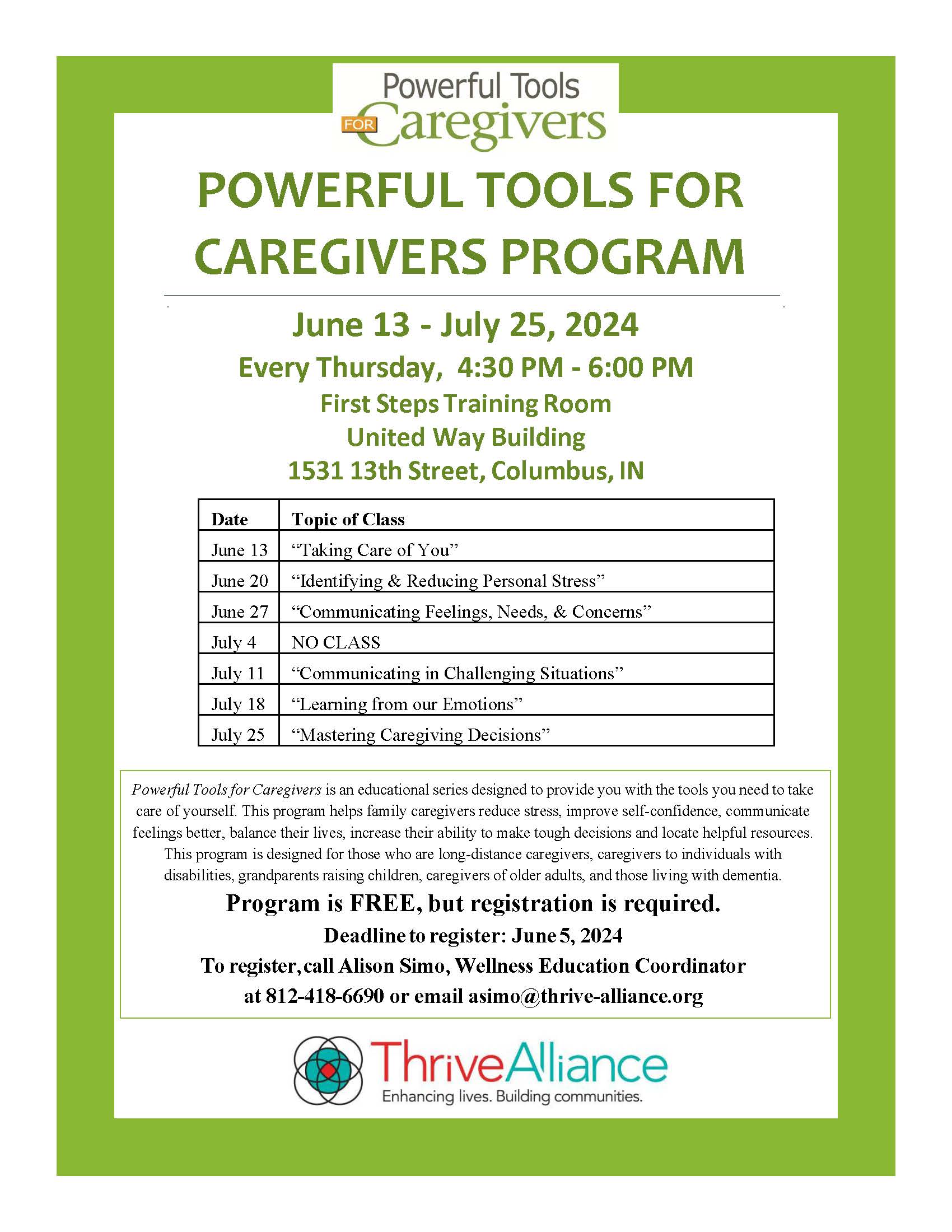
Resource: A Senior’s Guide to Fentanyl
https://www.ecdol.org/a-seniors-guide-to-fentanyl/
Printable Version at this link: ECDOL-Seniors-Guide-1
Elder Abuse Facts
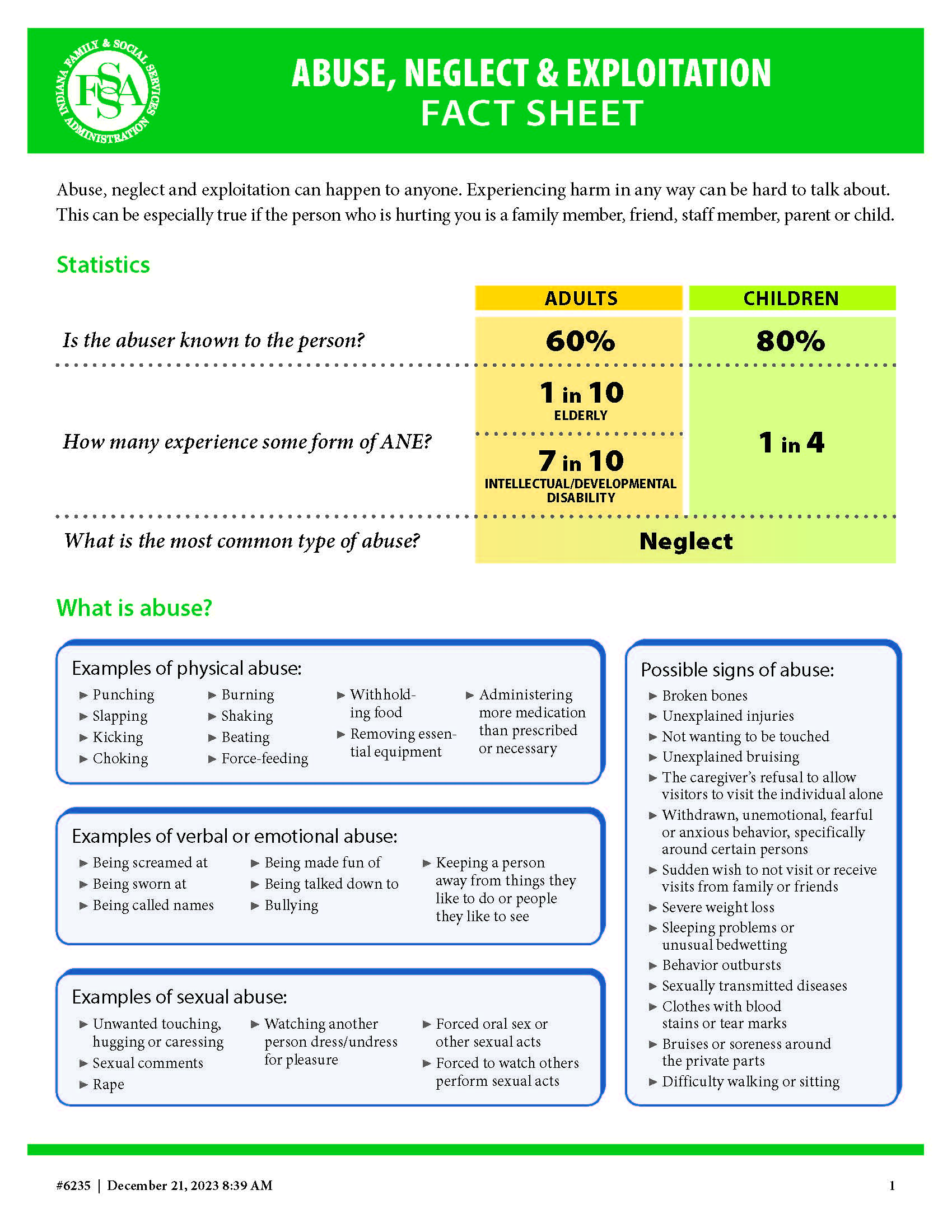
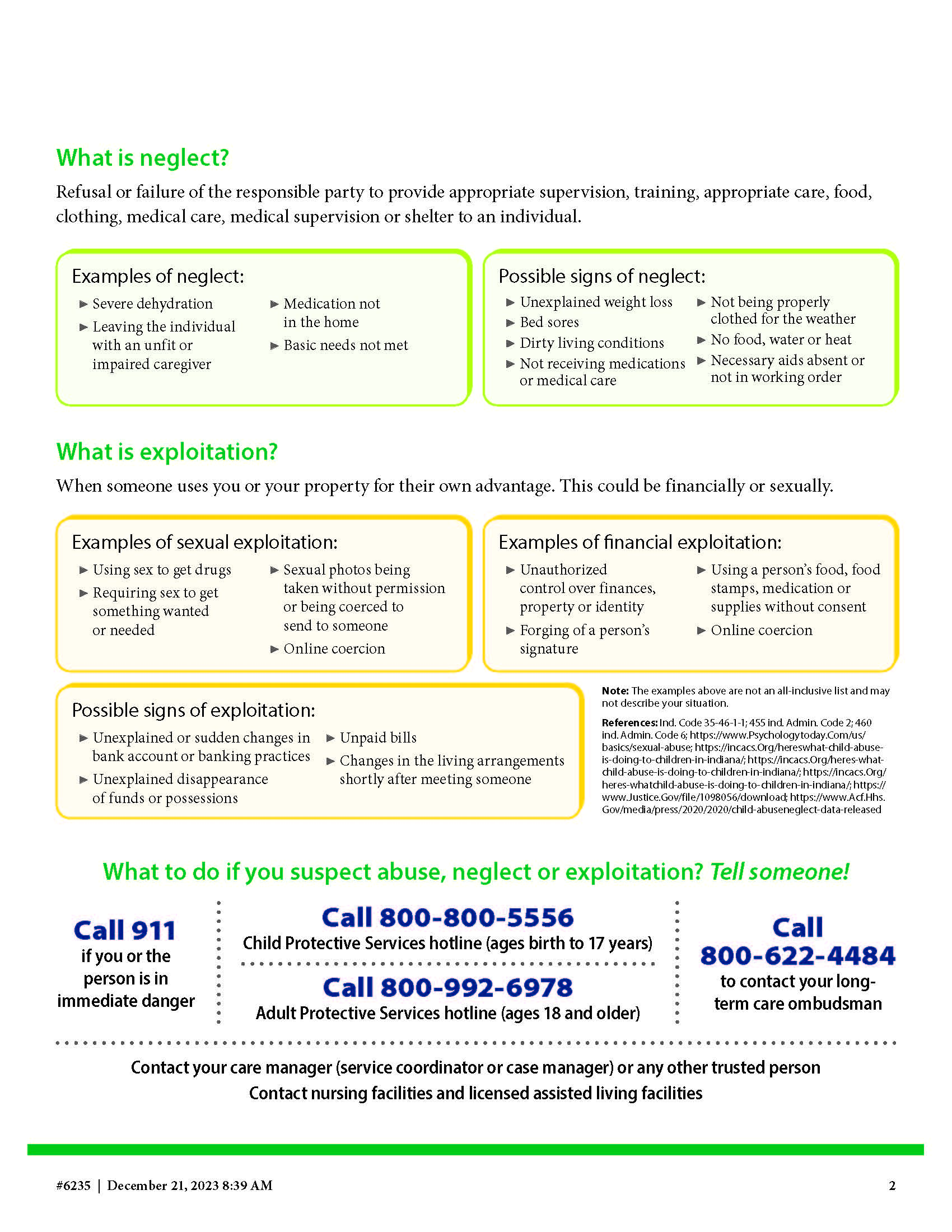
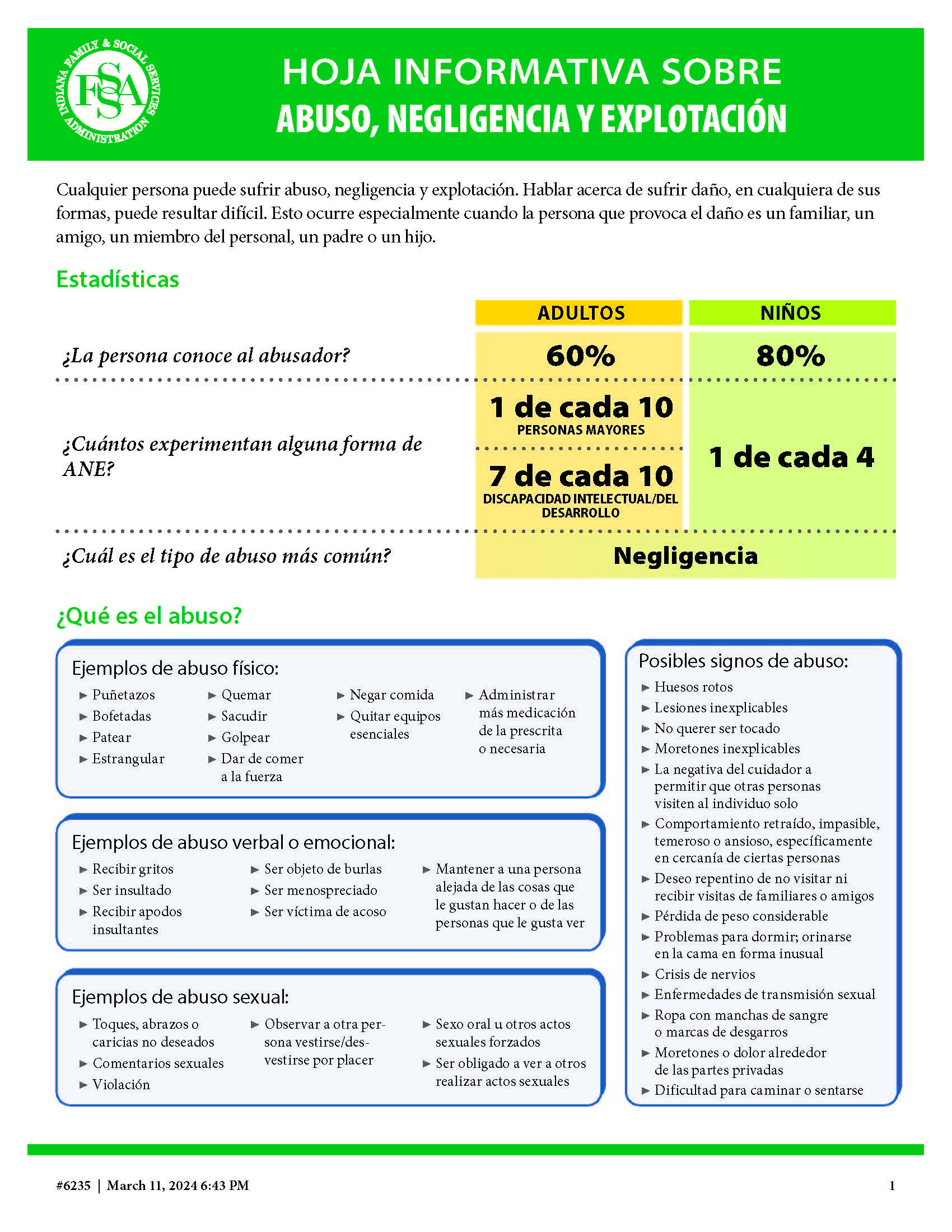
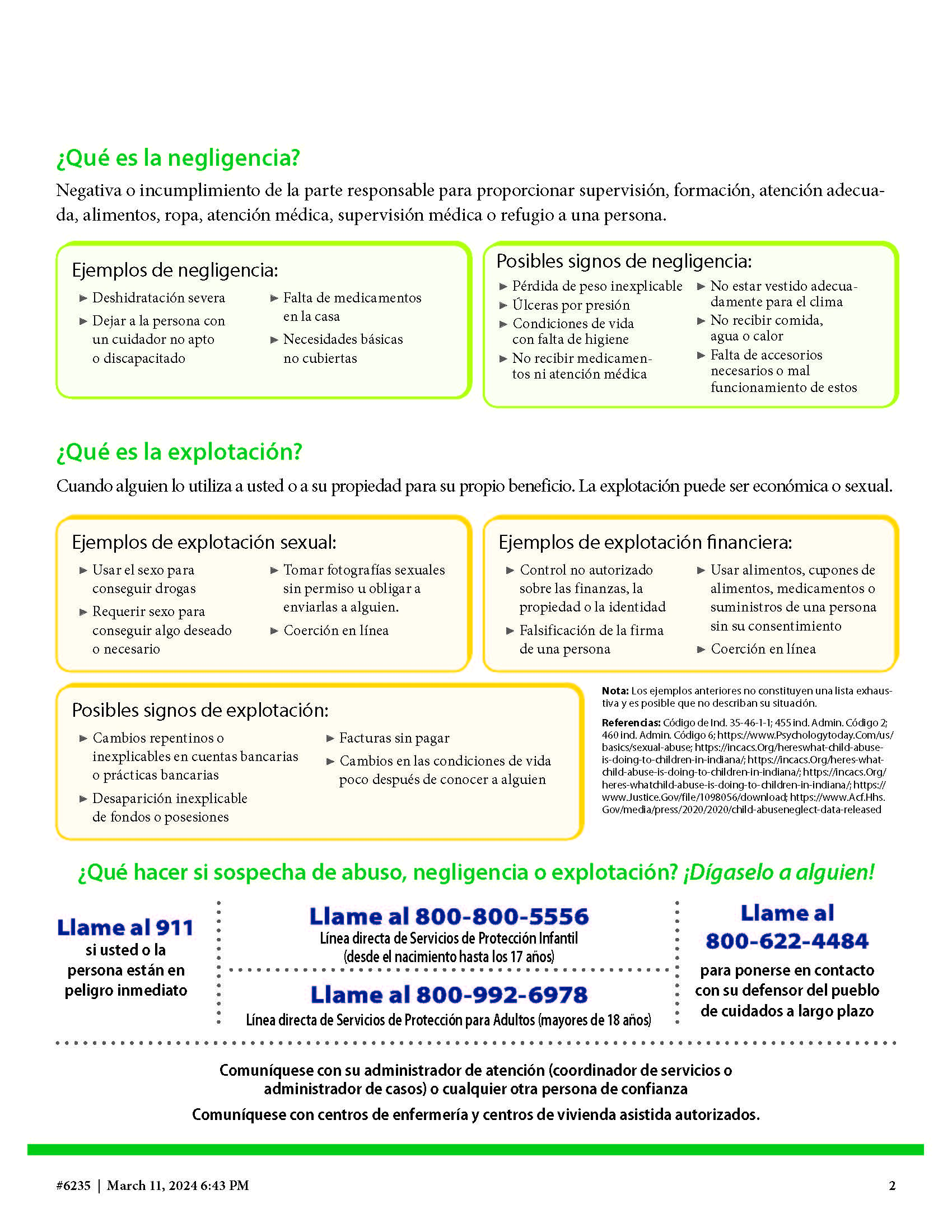
June 15th is World Elder Abuse Awareness Day
June 15th is World Elder Abuse Awareness Day. Older people throughout the United States lose an estimated $2.6 billion + annually due to elder financial abuse and exploitation. Elder abuse also creates health care and legal costs for our society. However, we can change this. Learn more: https://ow.ly/NyY450OPKBU #WEAAD

Are You Smarter Than A Scammer?

From The Republic: Council approves rezoning for Thrive Alliance proposed affordable housing project
Council approves rezoning for Thrive Alliance proposed affordable housing project
The Columbus City Council on Tuesday night approved the first reading of an ordinance by a 7-0 vote to rezone property where Thrive Alliance plans to build a development with a combination of workforce family housing and housing for seniors.
Councilman Chris Bartels, R-District 1, was absent and Councilwoman Grace Kestler, D-at-large abstained from the vote because she’s on the Thrive Alliance board.
Ordinances must be passed on two readings to be approved.
Housing Partnerships Inc., a non-profit that does business as Thrive Alliance, is looking to rezone the former Columbus Health and Rehabilitation facility site at 2100 Midway St. from Public & Semi-Public Facilities (P) to Residential: Multi-Family (RM).
Housing Partnerships bought the 7.6-acre property for $1.5 million on March 22 and plans to apply for federal Low Income Housing Credits and accept Section 8 vouchers, The Republic previously reported.
Kevin Johnson, executive director of Housing Partnerships at Thrive Alliance, said there are two phases for the four-story development— the first phase would focus on providing workforce family housing and phase 2 would be senior housing for those 55 and older.
Phase one would see 64 workforce family housing units with a childcare component and phase two would incorporate an additional 64 units intended for seniors for a total of 128 units. The plan is to connect the two areas of the development “so that we can try to tie those two diverse populations together and maybe help with social isolation of some seniors,” Johnson told the council.
The AmeriCorps Seniors Foster Grandparent Program, sponsored locally by Thrive Alliance, would play a part as well, Johnson said, with the idea being that “grandparents could help some of the children in the facility after they’d been vetted to do homework and different things like that …” Johnson added that Aging and Community Services of South Central Indiana, a sister-organization of Thrive Alliance, would be involved too.
Typically workforce housing is defined as housing affordable for those who are employed and earning less than 80 percent of area median income (AMI), but Thrive Alliance, as a non-profit, has a different standard and would intend for the development to be for those earning anywhere between 30 and 60 percent of AMI, Johnson said.
City/County Director Jeff Bergman pointed out that parts of the property are located in the 100- to 500-year floodplain, meaning “those are areas where development is permissible, but that development, particularly new structures, will need to meet certain standards to be protected from flooding.”
The comprehensive plan future land use map identifies the area as future residential, although Bergman said it isn’t specific about density or types of housing at the location. He added the most important takeaway to be had from the intent of RM “is that the zoning ordinance says it should be used in locations where there’s highly developed infrastructure, good access to high volume roads, good connections to convenience goods and open space,” Bergman told the council.
The Columbus Plan Commission during their meeting on May 8 forwarded the matter to the council with a favorable recommendation by a 10-0 vote with a commitment that an additional right-of-way and sidewalk would be created along the property’s Midway Street frontage. There isn’t already a dedicated right-of-way there because the property had not been platted before, according to Bergman.
Councilwoman Elaine Hilber, D-District 2, said the development is “essentially what we’re striving for” and that it had been difficult in the past to find high-density affordable housing in areas that are easy for people to travel to and from.
Councilman Tom Dell, D-at-large) expressed support for the development as well saying it helps supply housing stock in areas where the city is deficient.
Jane Seelig, the president of the Two Worlds Condominium Association, told the council she was there on behalf of residents who would live just east of the development. She said they were concerned about traffic flow on adjoining roads that Two World maintains and what she called a potential crime increase if and when the development comes together.
Ground-breaking on the project, according to Johnson, would be by late spring or summer 2025, with construction tentatively expected to take around 18 months. That would mean residents likely would not be moving in until at least late 2026.
Johnson said previously that Thrive Alliance is planning to “go after multiple streams of funding” for the project, which is estimated to cost about $14 million.
June Caregiver Connection
The June edition of Caregiver Connection is at this link: https://thrive-alliance.org/wp-content/uploads/2024/05/June-2024-Caregiver-Connection.pdf
From The Republic, Columbus, Indiana: Lindenlaub Retires from HPI, Thrive Alliance
From The Republic, Columbus, Indiana:
Lindenlaub Retires from HPI, Thrive Alliance
By Mark Webber | The Republic [email protected]

Thrive Alliance Executive Director Mark Lindenlaub is retiring after leading Housing Partnerships, Inc. for 31 years and serving as the executive director at Aging & Community Services of South Central Indiana for 13 years. The Republic file photo
The man who led a regional effort to create affordable housing in Columbus and south central Indiana is retiring. Thrive Alliance Executive Director Mark Lindenlaub has led Housing Partnerships, Inc. for 31 years and served as the executive director at Aging & Community Services of South Central Indiana for 13 years.
Teresa Lorenz has been named the new executive director of Thrive Alliance and Aging and Community Services. Kevin Johnson is already working as executive director of HPI. Lindenlaub said Lorenz and Johnson have the expertise that will better serve clients in the future.
Lindenlaub has always been very passionate about his job and the work he does, former HPI board president Shannon Unsworth said.
“I’ve been blessed with a career I love that I feel is providing service to families that may have not had as many opportunities as some others,” said Lindenlaub, 64.
Raised in West Lafayette, Lindenlaub’s love for architecture led him to enroll in a five-year program at Ball State University in Muncie.
“Over the course of my first year, I realized my love and interest of the outdoors was where I wanted to put my time,” Lindenlaub said. “I graduated with a four-year degree in environmental sciences and a five-year-degree in landscape architecture.”
He would later return to Ball State to earn his master’s in business administration.
After initially working in Indianapolis, Lindenlaub left the permanent job to accept a temporary position offered by renowned landscape architect Michael Van Valkenburg. It was his responsibility to oversee the renovation of Mill Race Park.
Construction at Mill Race began in June, 1990. When the work was completed in the fall of 1992, Lindenlaub was out of a job.
But it wasn’t long before he became associated with a two-year-old nonprofit based at First Presbyterian Church.
Funded with an initial startup grant of $30,000 from the church, the new organization used volunteer labor to turn dilapidated homes into quality affordable housing. After seven other local churches joined forces with First Presbyterian, the organization became known as Housing Partnerships, Inc. (HPI).
Construction director Darrell Unsworth became the first full-time employee of HPI. It took a few more months before they hired Lindenlaub as executive director, based mostly on his MBA and design skills, he said.
While HPI did not have a definite plan starting out, Lindenlaub said the organization understood there has long been obstacles to providing safe, decent and affordable housing. That motivated the organization to expand services, which Lindenlaub said was one of the drivers that motivated HPI into providing rental housing in 1994.
After the nonprofit decided to completely renovate the old National Guard building at 7th and Franklin into 25 affordable apartments for seniors, Lindenlaub worried he and Unsworth may have bitten off more than they could chew.
“As Darrell and I started to get into the grant work, we used to joke that we were too dumb to know it won’t work,” Lindenlaub said. “We dreamed big, and did things like the armory that were not on the radar of the original founders. We worked every step hard until we could find a way to get to the next step. You do that 100 times or 1,000 times. Then, you’ve got a project.”
The Armory Apartments was named 1998 “Project of the Year” by the Indiana Association for Community Economic Development.
The next project involved working with the Lincoln-Central Neighborhood Family Center from 1997 to 1998 to renovate 14 substandard houses into decent, affordable rental homes.
“We were really focused on trying to take the worst house in a downtown neighborhood, and make it the best house on the block,” Lindenlaub said. “Studies show that if you look at a block where we have renovated a handful of houses, compared to a block next door that we hadn’t touched, they show property values of neighboring properties had either stabilized or gone up.”
Housing Partnerships became well-known and respected in the region, which spurred growing community support.
“When we started out, we had an all-volunteer model,” Lindenlaub said. “We have relied on community support and donations throughout our history.”
In 1999, the nonprofit celebrated its 10-year anniversary by reaching the milestones of 100 homes built and 50 homes sold.
In 2001, HPI received nearly $500,000 in federal grants to create 10 homes to sell to first-time home buyers. That same year, Lindenlaub was presented the Governor’s Award for Excellence in Affordable Housing.
Another milestone was reached in 2003 when HPI broke ground on it’s first-ever subdivision on McKinley Court, platting five lots and building the first three houses.
“At first, the inclusion of rental housing did not raise too many eyebrows,” Lindenlaub said. “But as we began to build up our rental properties, that’s when we got a little more scrutiny.” HPI found itself facing a potentially devastating financial challenge when then-Bartholomew County Assessor Tom Owens reversed his previous determination that the agency’s homes were property tax-exempt.
Twice before, the Property Tax Adjustment Board of Appeals agreed that HPI was qualified under state statutes for property tax exemption on affordable housing. When the decision was reversed, the nonprofit was developing additional properties with a 15-year commitment and a budget that did not include property taxes, Lindenlaub said.
“When they reversed the decision, it immediately put a structural deficit on our program,” the retiring administrator said. “Our only option was to continue appealing.”
The main contention of the Property Tax Adjustment Board of Appeals is that they did not believe HPI qualifies as a charitable organization that performs services the government doesn’t provide. In addition, a number of landlords complained they have to pay taxes on rental property that supports local government and public institutions while HPI did not have that burden.
As financial losses accumulated, HPI was forced to sell off homes for the first time in its history.
Despite the financial challenges, HPI continued to move forward. In 2009, the agency celebrated its 20th anniversary by expanding the original mission to include all aspects of neighborhood redevelopment, not just affordable housing.
“We saw we were serving a number of single parents, but the housing program would not pay for a garage or fenced yard because neither is considered housing,” Lindenlaub said. “We recognized that if you are a single parent and want to be doing chores at home, you need a safe place for your kids to go out and play. We added that to our normal work plans to better the lives of those worked there.”
In March of 2011, Lindenlaub took over as executive director of Aging & Community Services (ACS) of South Central Indiana, while still maintaining his leadership position with HPI.
“Housing grants provide housing, but they don’t provide money for supporting the families,” Lindenlaub said. “ACS helps people figure out what their needs are, and develop resource plans to address those. It really was a mission fit.”
When the announcement was made, ACS board president Susan Waltz praised Lindenlaub for “taking his strong personal values and morals and transferring them to his work to provide the best services possible.”
The two agencies officially joined forces in 2013 under a single name: Thrive Alliance. It was the same year that HPI purchased and renovated Cambridge Square Apartments, providing housing units for 70 families. Two years later, HPI renovated four vacant historic buildings in downtown Greensburg into 40 senior apartments.
In 2012, Lindenlaub was awarded the Michael A. Carroll Award from the Indiana Association for Community Economic Development.
After 12 years of appeals and financial stress regarding the county’s property tax reversal, the Indiana Board of Tax Review ruled in favor of HPI in 2018. They ordered that the nonprofit be granted property tax exemptions for its housing projects for each year under appeal. The determination referred to 60 properties.
Bartholomew County was ordered to repay HPI $750,000 for property taxes paid from 2009-17, which included all back taxes the county had charged during the appeals process.
But just as they appealed the 2006 tax decision, Lindenlaub and his organization knew county government would appeal the decision to the Indiana Tax Court. From 2019 to 2020, HPI continued to pay property taxes and interest.
The celebrations came in 2020, when the Indiana Tax Court concurred with the Indiana Board of Tax Review that HPI qualifies for property tax exemptions.
Today, Thrive Alliance Housing Services now manages more than 100 affordable rental homes as well as five multiunit complexes in Columbus, Greensburg and Seymour.
They have recently received a $1.2 million grant to construct low income house in Terre Haute. The nonprofit also announced plans to construct 128 affordable housing units on the side of a vacant nursing home on Midway St.
Lindenlaub says the creation of the Armory Apartments in the 1990s, as well as the final 2020 tax exemption decision, were among the most satisfying moments of his career.
But neither compare with the privilege of working with the staff at Thrive Alliance, Lindenlaub said.
“We’ve seen staff improve and really blossom in their careers,” Lindenlaub said. “The client success stories are best, but second is just watching all of our staff gel together and rise to meet challenges head on.”
Lindenlaub Retiring As Executive Director of Thrive Alliance
Mark Lindenlaub Announces Retirement as Executive Director of Thrive Alliance
Mark Lindenlaub, Executive Director of Thrive Alliance since its inception in 2011, has announced his retirement beginning at the end of this month. Lindenlaub began serving as President of Housing Partnerships, Inc. (HPI) in 1993 and was named Executive Director of the newly formed Thrive Alliance when HPI merged with Aging and Community Services of South Central Indiana, Inc.
In his role he has been responsible for overall agency leadership, managing the merger process (including legal structure, board restructuring, and operational consolidation), strategic planning, expanding and developing new client services, and producing greater client and community impacts. He also led development of Thrive Alliance’s vision statement, “Everyone has the opportunity to live a secure, engaged and independent life,” and mission statement, “To improve the quality of life for people at risk of losing their independence.”
Under Lindenlaub’s leadership, after the merger with Aging and Community Services, HPI shifted its focus from refurbishing homes for first-time home buyers to obtaining funding for the construction of multi-unit, affordable housing complexes, including The Armory and Gateway Apartments in Columbus, Historic Greensburg Square, Crossroads Senior Apartments in Seymour and, soon to be under construction, Heritage Landing in Terre Haute. These projects combine HPI’s long-time commitment to creating much-needed affordable housing along with the healthcare, wellness and social services expertise of Aging and Community Services.
A celebration of Lindenlaub’s career is planned for May 22 at the Commons in Columbus from 4:30 p.m. to 6:30 p.m. Those wishing to attend are asked to RSVP to [email protected] or 812.372.6918.
During his tenure with HPI and Thrive Alliance, Lindenlaub has held numerous positions with State associations and local community organizations and has received numerous awards for his professional and community-involvement accomplishments. They include the following:
- Indiana Association for Community Economic Development, Board of Directors 2002-present including a two-year term as president.
- Federal Home Loan Bank of Indianapolis, Affordable Housing Advisory Committee 2003-2009, serving as chair in 2008.
- Governor’s Distinguished Hoosier Award, 2007
- Governor’s Award for Excellence in Affordable Housing, Leadership Award, 2001
- United Way of Bartholomew County
- Self-Sufficiency Vision Council, Chair, 2009-present
- Strategic Planning Committee, 2008-2009
- Brown County Partnership, Vision 2020 Tracking Committee, Chair, 2008-present
- Friends of Brown County State Park, 2007-present; President, 2009-present
- Columbus Area Chamber of Commerce, Affordable Housing Task Force, 2007
- Columbus Rotary Club, 1996 to present
- Governor’s “Service Above Self” Award, 2008
- Columbus Rotary Club’s “Teree Bergman Service Above Self” Award, 2008
+++++++++++++++++++++++++++++++++++++++++++++++++++++++++++++++++
Guided by the vision that everyone should have the opportunity to live a secure, engaged and independent life, Thrive Alliance strives to improve the quality of life and health for people at risk of losing their independence.
Thrive Alliance’s network of programs focuses on issues related to affordable housing, caregiver support and services, nutrition and wellness programs, transportation and accessibility services, as well as fostering community-wide support for aging related issues.
From The Republic: Closing the Gap

Mike Wolanin | The Republic An exterior view of Columbus Transitional Care and Rehabilitation, 2100 Midway St., in Columbus, Ind., Thursday, April 2, 2020. The property may be demolished and repurposed as affordable housing for low-income families and seniors.
Thrive Alliance has unveiled plans to tear down a vacant nursing home in Columbus to build a housing complex for low-income families and seniors.
The proposed development, located at 2100 Midway St., could potentially include up to 128 affordable housing units, which would be a significant step forward in the city’s efforts to expand affordable housing.
Housing Partnerships Inc., a non-profit that does business as Thrive Alliance, bought the 7.6-acre property for $1.5 million on March 22 and plans to apply for federal Low Income Housing Credits and accept Section 8 vouchers.
On Wednesday, the Columbus Plan Commission voted to issue a favorable recommendation to rezone the property to allow for the development. Next, the rezoning request will go before the Columbus City Council.
“We’re still in the concept (phase), trying to get all the pieces put together of what we need,” said Kevin Johnson, executive director of Housing Partnerships at Thrive Alliance. “Of course, part of what will sway what we decide will be the housing study that Columbus is going through right now. …Our dream will be to put a multifamily project on the site.”
“Of course, everything is contingent on funding,” Johnson added.
Currently, Thrive Alliance is hoping to build a 64 units on the property for families that incorporates child care that also would be open to the community, Johnson said.
Additionally, the organization plans to build another 64 units for seniors with hopes of connecting the two areas and setting up an area for the seniors to connect with young people living in the family development to “help break down social isolation.”
However, the proposed housing development will not be ready in time to house the residents of the Villas apartments, which is going to close next year.
Johnson said he hopes to break ground on the project by late spring or summer 2025, “if everything falls into place,” with construction tentatively expected to take around 18 months. That would mean residents likely would not be moving in until at least late 2026.
Johnson said Thrive Alliance is planning to “go after multiple streams of funding” for the project, which is estimated to cost about $14 million.
The proposed affordable housing development comes as city is poised to lose 99 affordable housing units after BHI Senior Care announced that it would close the Villas apartments, 4101 Waycross Drive, next year.
The city also could be at risk of losing more affordable housing units within the next five years should property owners not extend their agreements or obtain new subsidies when their contracts with the federal government expire, according to a U.S. Department of Housing and Urban Development database.
“We sure hope whatever inventory we lose, projects like what Thrive is proposing will help fill some of the void,” said Eric Frey, the city’s executive director of administration. “We’re hopeful that we’ll see other developers down the road as well looking at developing affordable housing and try to help make up for the loss that we’re going to see from the Villas.”
Powerful Tools for Caregivers Course Being Offered
